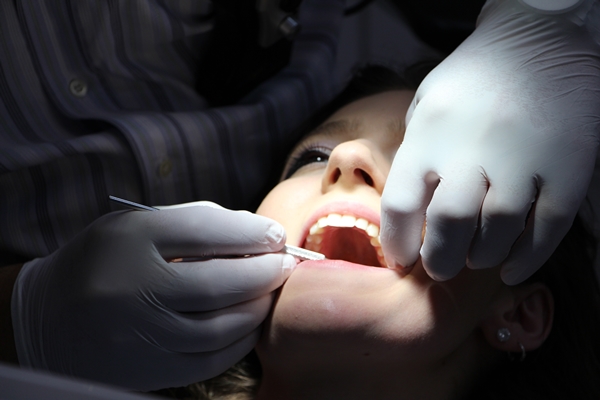10 January 2017. Chemical signals from a drug designed to treat Alzheimer’s disease and other neurological disorders were shown in tests with mice to stimulate stem cells that repair teeth. A team from King’s College London, led by Dental Institute professor Paul Sharpe, describes its findings in the 9 January issue of the journal Scientific Reports.
Sharp and his lab colleagues study regenerative medicine, particularly the role of stem cells in growing new dental tissue for repairing teeth. In this study, researchers are seeking improvements to current methods for fixing damage to teeth caused by cavities that rely largely on fillings and cements made with silicon or calcium. Repairing further decay in the cavities, for example, requires removing original fillings and surrounding tooth material, often exposing the inner tooth pulp, and increasing the risk of infection.
The King’s College London team takes a different approach to tooth repair: stimulating dental stem cells in tooth pulp to regrow and restore dentin, the bone-like calcium material that protects inner parts of the tooth. Dentin is produced from mesenchymal stem cells in bone marrow, which can create thin layers of dentin on their own, but not in large enough quantities to repair cavities.
The researchers adopted a strategy of stimulating dental stem cells, known as odontoblasts, with chemical signals to produce dentin in large enough quantities for tooth repair. Their investigations revealed an enzyme called glycogen synthase kinase-3, or GSK-3, that limits production of Axin2, another protein needed to make calcium, the basic material in dentin. The researchers hypothesized that treatments on damaged teeth blocking the actions of GSK-3 could release more Axin2 to generate odontoblasts for producing larger amounts of dentin.
The team discovered tideglusib, an experimental small-molecule or low-molecular weight drug for Alzheimer’s disease and other neurological disorders, acts by blocking signals from GSK-3. While later studies returned mixed results as a treatment for Alzheimer’s disease, early-stage trials showed tideglusib was safe and well-tolerated by patients. That clinical trial record highlighted the drug’s chemical actions as a safe route for this project.
The researchers tested their hypothesis in a proof-of-concept study on mice induced with tooth damage. The team infused low doses of tideglusib and two other GSK-3 inhibitors in commercial biodegradable medical sponge material placed inside the damaged teeth. The team found the treatments after 4 weeks restored as much as twice the amount of dentin as comparable mice teeth given untreated sponges or conventional mineral aggregates. After 6 weeks, the researchers found the sponges used to deliver the treatments completely degraded and dentin filled the damage sites.
“The simplicity of our approach,” says Sharpe in a university statement,”makes it ideal as a clinical dental product for the natural treatment of large cavities, by providing both pulp protection and restoring dentin.” He adds that “using a drug that has already been tested in clinical trials for Alzheimer’s disease provides a real opportunity to get this dental treatment quickly into clinics.”
Read more:
- Gene Expression Changes Found in Wound Healing Therapy
- Trial to Test Stem Cells for Treating Heart Failure
- Stem Cells Shown to Regenerate Dental Pulp Tissue
- Trial Testing Stem-Cell Implant for Cartilage Repair
- Start-Up Reprogramming Stem Cells to Treat Heart Failure
* * *


 RSS - Posts
RSS - Posts
You must be logged in to post a comment.